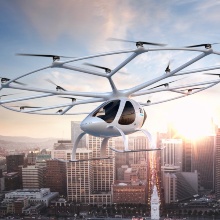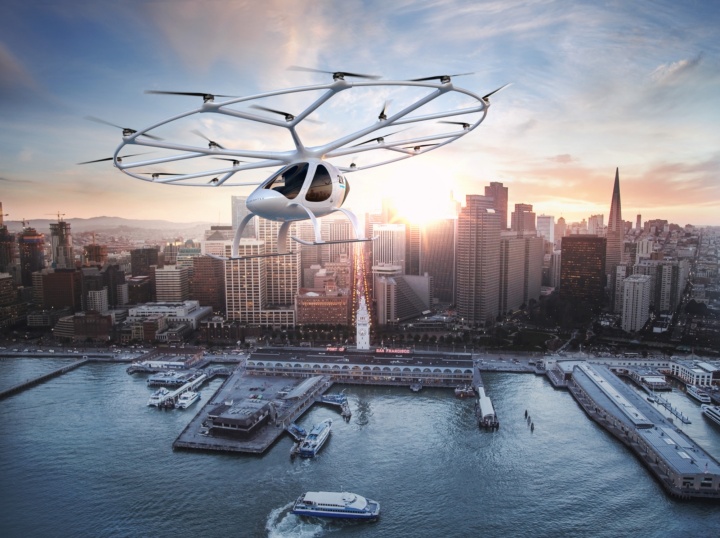A volocopter is to fly over a European city center for the first time. On board the flying taxi are flight control algorithms developed by the Institute of Flight Mechanics and Control (iFR) at the University of Stuttgart
Volocopters are emission-free multicopters powered by 18 electric motors that can take off and land vertically. They are based on drone technology and can fly two people just under 30 kilometers. Since their need for physical infrastructure such as space for takeoff and landing is low, multicopters can be used very flexibly. Therefore, they are considered a promising solution to meet part of the increasing transport needs in metropolitan areas and to alleviate bottlenecks in transport infrastructure. As part of the “Vision Smart City” event at the Mercedes-Benz museum in Stuttgart, on Saturday, September 14, 2019, this kind of flying taxi will fly over a European city center for the first time.
The Institute of Flight Mechanics and Control has developed the flight control algorithms for the flying taxi, working closely together with Volocopter. These ensure that the command signals given by the pilot using the joystick are obeyed safely and quickly, meaning that the aircraft is very easy to control. This is possible because the 18 propellers are controlled using a sophisticated procedure. Even if some of them fail, the flying taxi can still be controlled without any problems. “The reliability and safety requirements of a flying taxi are very high, which is why flight control plays such an important role”, explains Prof. Walter Fichter, Head of the Institute of Flight Mechanics and Control.
The institute is involved in various urban air mobility projects with leading international flying taxi developers. Additionally, the scientists have been carrying out research into highly-automated, intelligent and electric flying for a number of years. The IFR is currently establishing testing areas for energy-efficient, electric and autonomous flying in Baden-Württemberg. With a suitable testing area, researchers can test these flying technologies on real aircraft and demonstrate complete systems in practice.
The experts have already developed algorithms for highly-automated flights. This means that in future a flying taxi will be able to follow a trajectory, meaning a three-dimensional path with a preset temporal sequence, including takeoff and a precise landing.
Expert Contact:
Prof. Walter Fichter, Institute of Flight Mechanics and Control, Pfaffenwaldring 27, 70569 Stuttgart, phone +49 711 685-67060, email
Vincenz Frenzel, Institute of Flight Mechanics and Control, Pfaffenwaldring 27, 70569 Stuttgart, phone +49 711 685-61562, email



